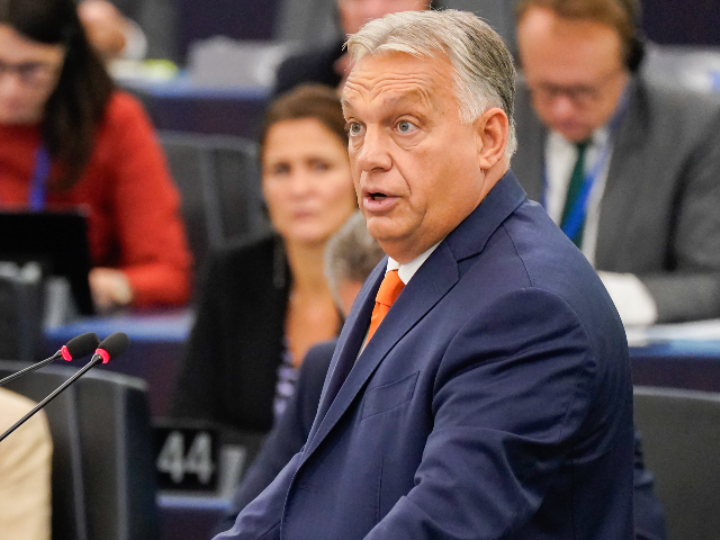By Eleni Choidas, Lis Cunha and Rachel Owens*
This year has seen significant progress when it comes to creating a more ethical and sustainable European financial sector.
As the Finnish Presidency takes the political reins and the European Commission moves to implement its Sustainable Finance Agenda, the legislative proposals, released in the aftermath of the Action Plan on Financing Sustainable Growth in May 2018, are well on their way to becoming an ambitious set of regulations meant to recalibrate the financial sector towards sustainable investing.
What should this mean, in practice? If rules are designed properly, it should mark the start of stronger consideration of environmental, social and governance factors when an investment is made. That means both planet and people will be increasingly at the forefront of investor risk.
New rules recently agreed will require large investors to disclose and report on their processes to identify and prevent adverse sustainability risks and impacts in the case of both mainstream and sustainable investments after 18 months. They also introduce more detailed requirements to prevent greenwashing in the use of climate-related benchmarks.
In addition, the Commission and European Supervisory Authorities, who regulate the EU’s financial sector, are working on mainstreaming the consideration of sustainability risks across EU financial regulation.
Despite this progress, political discussions on the progression of another crucial file, the Taxonomy, lay bare a key gap in its development – which may threaten its usability and relevance.
EU Member States in the Council are currently discussing the Taxonomy proposal, once called the “trunk” of the Action Plan by European Commission Vice-President Valdis Dombrovskis. Once finalised, it is expected that the “common language” this classification system will create, will help companies raise capital in environmentally friendly operations, as well as give investors a common framework that will prevent greenwashing.
Yet, the current political climate in Brussels means that not enough attention is being paid towards guaranteeing that the Taxonomy will not unwittingly promote harm to people as it seeks to power environmental progress. Specifically, one worrying misconception that has grown over time is that this classification system already adequately incorporates the consideration of human rights risks, through the inclusion of robust minimum social safeguards.
The Parliament, in recognition of the limited coverage provided by international labour rights conventions, has expanded the standards proposed by the European Commission to include also the OECD Guidelines and the UN Guiding Principles on Business and Human Rights. A year ago, a group of NGOs, trade unions, academic experts and MEPs aimed to achieve just that through a letter-writing campaign. Yet while the current drafts reference the legal standards that the safeguards should respect, the actual safeguards themselves have not been developed.
This is a significant gap. It is not news that many activities often considered green, like the production of certain forms of renewable energy, can be linked to violations of the rights of communities.
Many vulnerable communities in the South have already lost their land and seen their food security undermined in the expanding drive for biofuel production. Cases of displacement, harms to indigenous peoples’ rights, threats and killings linked to wind, hydropower and solar projects around the world have also been reported. In a report released in July this year, Enemies of the State, more than three people were murdered each week in 2018, with countless more criminalised for defending their land and our environment.
It is crucial that strong social safeguards are introduced as a key compliance requirement in the Taxonomy. This will help to prevent European investors providing financial support for climate-friendly economic activities that are causing or contributing to human rights violations such as land grabbing and undermining farmers’ livelihoods.
This is both antithetical to the values and legal obligations of the EU, as well as the financial interests of investors – not to mention the millions of ordinary savers whose money they invest. The Taxonomy is not fit for purpose until these safeguards are adequately developed.
What is therefore needed to dispel this confusion and create a regulatory system that allows a sustainable economy to thrive?
The co-legislators must develop high-level principles to ensure that complying with the Taxonomy will require due diligence processes which are appropriate to the sector of the relevant economic activity, and are based on engagement with stakeholders impacted by the economic activity in question – such as employees and affected communities.
This would ensure a minimum set of requirements, while allowing for flexibility for Member States to turn these principles into relevant safeguards.
Secondly, as the development of the social safeguards falls beyond the mandate of the Technical Expert Group which has been set up, and requires specific human rights expertise, policy-makers must ensure the inclusion of human rights experts in the forthcoming Permanent Platform on Sustainable Finance, tasked with the continued oversight and review of these safeguards.
With the Finnish Presidency at the helm, a government that has committed to putting sustainability and human rights at the forefront of its programme, civil society advocates across Europe are calling for a Council General Approach that will respond to this gap. This is a first step towards ensuring an ambitious outcome in trilogues later in the year – and ensuring that the Taxonomy will truly deliver on its sustainability goals.
*Eleni Choidas is European policy manager at ShareAction
*Lis Cunha is EU policy officer at ActionAid International
*Rachel Owens is head of EU advocacy at Global Witness
**First published in euractiv.com




 By: N. Peter Kramer
By: N. Peter Kramer
